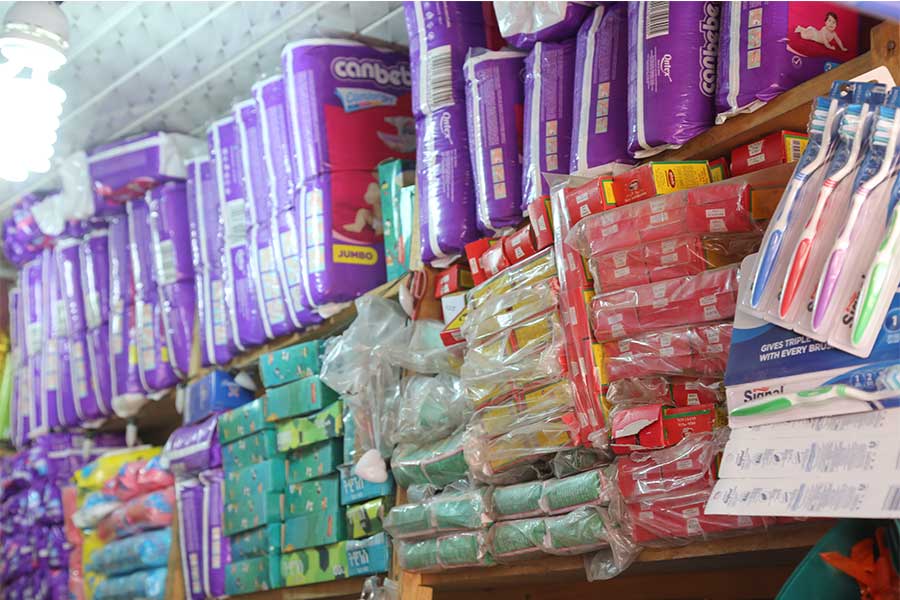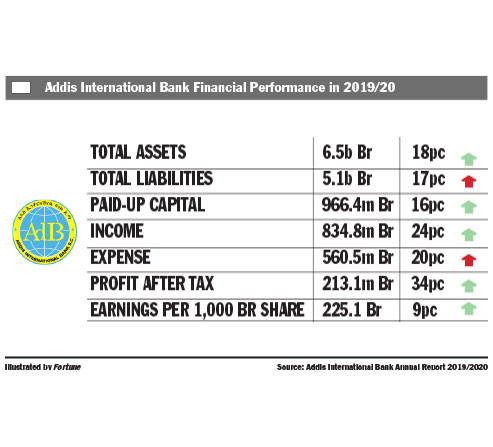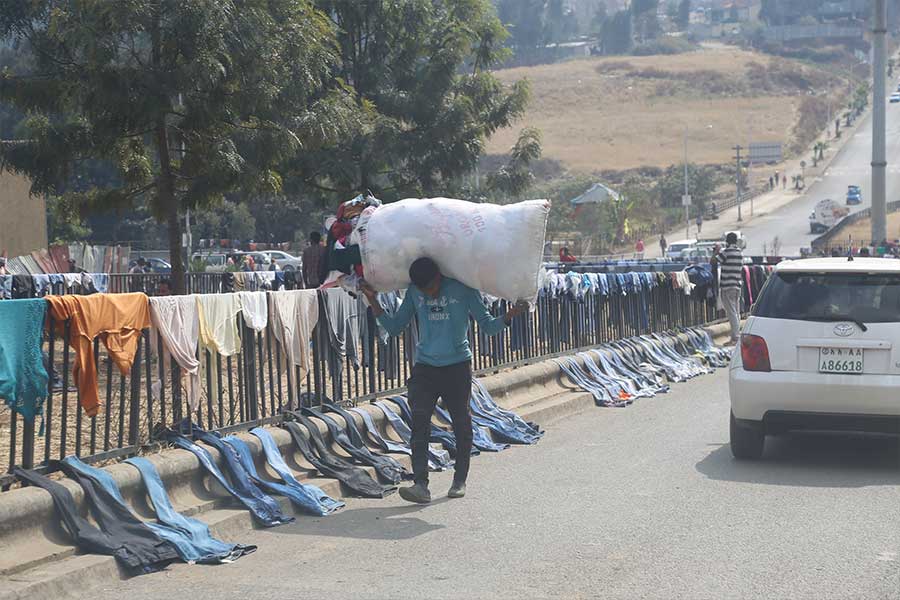
Radar | Apr 01,2024
On the afternoon of April 15, 2020, Semien Shola, a marketplace near Semen Mazegaga known for selling chickens and eggs, was not as crowded as it typically is. During holidays, the place is normally jammed with consumers who visit the market to buy food.
The long-awaited holiday has arrived, but markets that are usually very crowded during this time are less active thanks to the Novel Coronavirus (COVID-19) pandemic.
Lamrot Fantahun, in her mid-30s, bought two chickens and some eggs at one of the stores. For the married woman who is raising three children, the holiday is about more than just laying back and relaxing with her family. It is also a time to spend a little extra to buy chicken, butter, onions and eggs, as is the tradition.
After a two-month-long fasting season, residents enjoy the holiday by consuming animal products that they have refrained from during the fast. For Easter, doro wot, a traditional chicken stew is a top choice for most people, including foreigners and ex-pats. Chicken, butter, eggs and onion are the necessary ingredients to cook the stew.
Located in Gulele District, Semien Sholla market was conceived of decades ago and has developed its own traditions since then. With the busy time of the Easter shopping season approaching, retailers in Shola are fully supplied, as are other marketplaces with identical names, located in Merkato and Megenagna, where households look for alternatives.
Even though there is no shortage of supply and the price of commodities has decreased, the limited number of consumers because of COVID-19 has frustrated retailers in Addis Abeba. This year, consumers like Lamrot are likely to find chickens at a lower price than the previous Christmas holiday.
“You may be suprised to hear about the price of chicken,” said Lamrot, who bought two of them for 300 Br each. "Last Christmas, I spent more than 800 Br for two hens, only a week before the holiday."
The five members of the family of Lamrot cook two chickens in addition to other meals every holiday.
“I expected the price of eggs to go much higher than the last holiday,” said Lamrot. “However, I see that the price is the same.”
She bought an egg for five Birr, equal to the price at the last Christmas holiday. An egg costs four Birr at all Cooperative Unions that are found in Addis Abeba. Harar, Gojjam, Bishoftu, Arbaminch and Jimma are the major cities from which chickens and eggs are sourced.
Retailers sell butter at Solla Gebeya found in Megenagna.
Even though there is no shortage of supply, and prices have decreased, demand has declined because of COVID-19, according to Abite Assefa, one of the chicken retailers at Shola Gebeya, which is found in Megenagna.
“The reduction of the price followed the spread of the virus in the capital,” he adds.
Merkato provides most of the holiday items at lower prices than both the Sholla markets and Atikilt Tera, a place where vegetable products are sold. Most retailers agree that prices differ, mostly because of transportation costs incurred by the traders who brought the goods from the wholesalers.
Abiti Assefa, 29, is a retailer who has spent 11 years selling chickens around Shola Gebeya.
“Today, I brought 100 chickens to sell, and I will get 150 for tomorrow after I’m done with the ones I have now,” said Abiti.
The price of a chicken from Elfora ranges between 170 and 400 Br, a 100 Br reduction compared to the last holiday. Elfora is known for poultry products like table eggs, day-old chickens, pullets and broiler meat for the local and export market. The company has the capacity to produce more than one million kilograms of broilers and 50 million eggs a year and has branches at Piassa, Sarbet and Saris.
Butter is another essential ingredient that most households, including Lamrot, buy during holidays. Butter, which is usually processed and spiced in households is an essential component of doro wot.
The price of butter showed no dramatic increase compared to the last holiday. Even though there are different types of butter, the price is between 320 and 380 Br for a kilogram, while it was previously 350 Br. Conversely, the price of nutmeg has dropped from 300 Br to 200 Br for one kilogram.
The increment observed during this holiday is much lower than the increments observed during previous holidays.
As the Coronavirus spreads, people are becoming more cautious. Many conferences and large public gatherings have been cancelled. While the virus is having widespread consequences across the globe, markets in the capital are seeing a mix of positive and negative effects of the outbreak.
Places that are usually filled with loud music and cheerful vendors have quieted down.
The market during this holiday is slow, because people are afraid to leave their houses due to COVID-19, according to Bacha Zeleke, one of the onion sellers at Shola Gebeya, who brought 500Kg of habeshaonions, red onion, to sell for the holiday.
“There doesn’t seem to be any holiday market yet,” said 29-year-old Bacha, complaining that he had no customers starting from early in the morning. "I don’t think I'll sell all I brought here."
Bacha, who used to bring the onions from Debre Birhan, Shashemane, Awash and Koka, sells one kilogram of habeshaonions for 45 Br, which he sold for 60 Br during the last holiday.
In the past, people were busy buying various food items including sheep, chicken, butter, honey and spices to make the Easter holiday special. However, after the announcement of the virus in the capital, a mother of three, Senayit Girma, has noticed the market slowing down.
She was sitting on a wooden bench at Shola Gebeya after buying two large chickens for 420 and 430 Br.
“Previously, Shola was full of people, but now most are home scared of the virus,” said Senayit, who bought eggs, butter and cheese, for five Birr, 380 Br, and 100 Br, respectively. The price of honey has gone from 200 Br to 250 Br a kilogram.
Even if a lot of customers did not appear at the Qera market that sells cattle on the afternoon of April 15, 2020, Mulugeta Werede, a cattle seller and a member of the Ethiopian Livestock Trader’s Association, was standing at the doorway of the market and continued to look for cattle buyers after bringing 60 of them from Adama and Wellega.
“I planned to sell all the cattle I brought here," said Mulugeta, a father of three residing in Burayu.
There is no price change due to the holiday, and they range between 15,000 and 50,000 Br depending on the steer up for sale, according to Mulugeta.
Qera, Shegole, Kara and Akaki are the major cattle markets in the capital.
“At this time, the market is frozen, because many people aren't willing to eat raw meat,” said Mulugeta.
By mid-week, the price of sheep at Shegole market had remained the same as the previous holiday, and a sheep was being sold for 3,000 to 5,000 Br.
The Association has taken preventive actions to curb the virus, which include forcing every customer who enters the market to wear face masks and keep their distance. They are also spraying the cattle that enter the market with chemicals.
COVID-19’s impact on the market is so high that manufacturers have become discouraged, and sellers are being forced to sell at a price that puts them at a loss, according to Hailemariam Kebede (PhD), a lecturer at Addis Abeba University’s School of Commerce.
“After everyone spent a lot of money to buy food after COVID-19 arrived in the capital, it's no wonder that the market is down,” Hailemariam said.
For Hailemariam, there will be no capacity to spend the holiday as extravagantly as before, because demand will decrease.
"Sellers should sell commodities at a price that does not hurt them, and they should use other marketing options," he recommends.
PUBLISHED ON
Apr 17,2020 [ VOL
21 , NO
1042]

Radar | Apr 01,2024

Fortune News | Oct 05,2019

Commentaries | May 15,2021

My Opinion | Sep 24,2022

Featured | Oct 19,2019

Viewpoints | Mar 07,2020

Radar | Jun 25,2022

Fortune News | Apr 03,2021

In-Picture | Feb 13,2021

Radar | Feb 01,2020

Jul 13 , 2024 . By AKSAH ITALO
Investors who rely on tractors, trucks, and field vehicles for commuting, transportin...

Jul 13 , 2024 . By MUNIR SHEMSU
The cracks in Ethiopia's higher education system were laid bare during a synthesis re...

Jul 13 , 2024 . By AKSAH ITALO
Construction authorities have unveiled a price adjustment implementation manual for s...

Jul 13 , 2024
The banking industry is experiencing a transformative period under the oversight of N...

Jul 20 , 2024
In a volatile economic environment, sudden policy reversals leave businesses reeling...

Jul 13 , 2024
Policymakers are walking a tightrope, struggling to generate growth and create millio...

Jul 7 , 2024
The federal budget has crossed a symbolic threshold, approaching the one trillion Bir...

Jun 29 , 2024
In a spirited bid for autonomy, the National Bank of Ethiopia (NBE), under its younge...